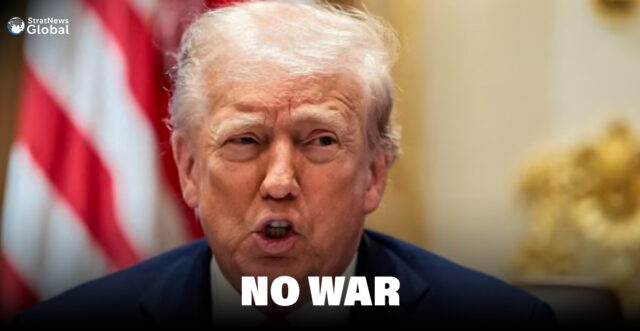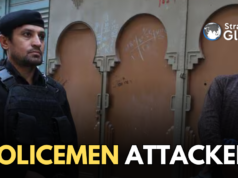U.S. President Donald Trump said on Thursday that his administration would soon brief the Congress on its actions against drug cartels, emphasizing that a formal declaration of war was unnecessary.
He added that the next stage of the campaign would shift focus to operations conducted on land.
The U.S. military has been increasing its presence in the Caribbean, including deployments of guided-missile destroyers, F-35 fighter jets, a nuclear submarine and thousands of troops.
“Well, I don’t think we’re going to necessarily ask for a declaration of war. I think we’re just going to kill people that are bringing drugs into our country. OK? We’re going to kill them,” Trump told reporters at the White House.
U.S. Strikes On Suspected Drug Vessels
The United States has carried out a number of strikes against suspected drug vessels in the Caribbean and Pacific Ocean since early September, killing nearly 40 people. While the Pentagon has provided little information, it has said some of those strikes have been against vessels near Venezuela.
“Now they (drugs) are coming in by land … you know, the land is going to be next,” Trump added, echoing comments he has made in recent weeks.
Venezuelan President Nicolas Maduro, speaking at a live event in Caracas on Thursday, warned that if the U.S. ever intervened in the country, “the working class would rise and a general insurrectional strike would be declared in the streets until power is regained,” adding that “millions of men and women with rifles would march across the country.”
Last week, two alleged drug traffickers survived a U.S. military strike in the Caribbean, according to reports. They were rescued and brought to a U.S. Navy warship before being repatriated to their home countries of Colombia and Ecuador.
Sitting next to Trump at the same event on Thursday, U.S. Defence Secretary Pete Hegseth defended the decision to repatriate two survivors, likening it to battlefield practices during the Iraq and Afghanistan wars.
“In those conflicts, we captured thousands on the battlefield and handed over 99% to host-nation authorities,” Hegseth said. “Did we always like the outcome? Not always. But it was the standard, and it’s the same here.”
(With inputs from Reuters)





